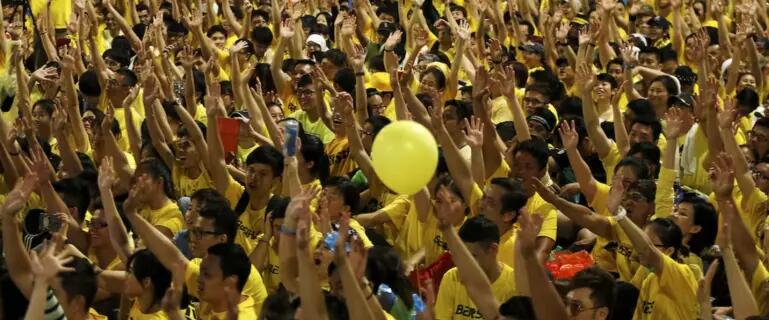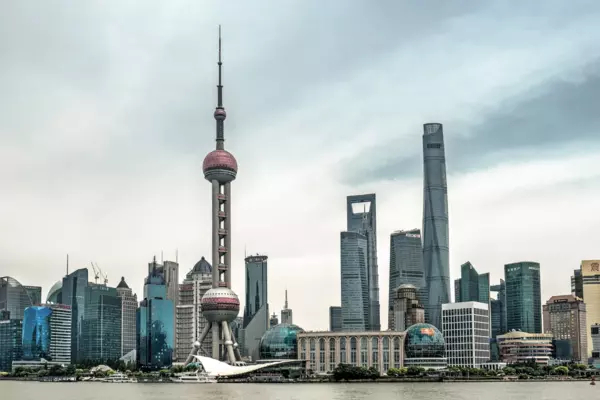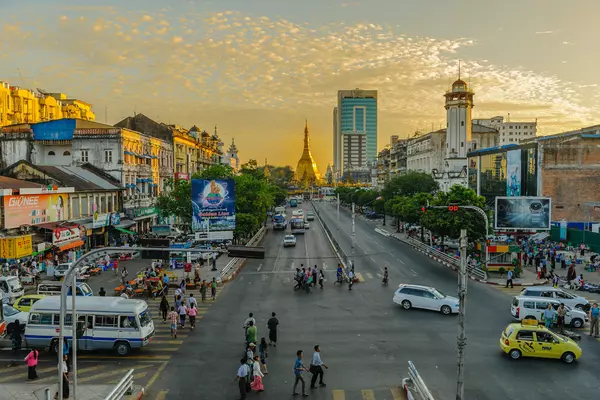
In February, Professor Lynette Ong released her second book, The Street and the Ballot Box: Interactions Between Social Movements and Electoral Politics, (Cambridge University Press, 2022) which explores Malaysia’s 2018 election and the Bersih Movement, a broad-based movement that united Malaysians and succeeded in its calls for electoral reform.
Bersih was created in 2006 and held 5 major rallies in Kuala Lumpur before 2018. The momentum built up over a 12-year period culminated in ending the long-ruling Barisan Nasional regime that ruled Malaysia for more than 60 years. It had also transformed into a transnational movement with rallies held across more than 30 countries, creating what Ong calls “an imagined global community” of yellow-shirt demonstrators yearning for political change in Malaysia.
We spoke with Ong, a professor of Political Science, jointly appointed to the Munk School’s Asian Institute, about The Street and The Ballot Box and what her research uncovered about calls for democratic reform in Malaysia.
You just published The Street and the Ballot Box, which dives into the Bersih movement and the 2018 Malaysian election. The overarching theme of your research here is how this social movement gained traction in a repressed context. What drew you to research and write about this specific movement?
Bersih stood out for two reasons: its inclusive agenda and broad-based support, and the fact that it had a direct impact on the electoral outcome.
I’ve studied social movements, but the Bersih movement is different – it’s so inclusive, and that’s important in Malaysia, which is a society highly divided along various ethnic and religious cleavages.
In social science, scholars tend to study social movements and elections separately. However, my argument is they actually interact a lot more than we think – I wanted to build a dialogue between the two important but disparate fields of study – in order to explain a big outcome such as regime or electoral change hence the book title, The Street and the Ballot Box.
Something that emerges in your research is how the Bersih movement united Malaysians across different social and political contexts. Has there been a tangible, lasting sense of unity brought by the Bersih movement between ordinary and elite Malaysians?
I would say Bersih has contributed to cultural changes in three important ways. First, Bersih rallies brought together Malaysians across different cleavages to rally behind the demand for “clean and fair elections”, which promoted a sense of national unity.
Second, the movement raised civic awareness of dirty tricks used by the United Malays National Organisation (UMNO )coalition to keep winning elections. It has changed the culture of political apathy – a culture of protest was not previously prevalent among the population – and raised voter turnout to historic levels.
Third, it created a broad platform for the opposition elites to work together with civil society and disenchanted masses. These are its legacies.
More broadly, how do you assess the status of the Bersih movement now, four years after the election, and electoral reform more broadly in Malaysia?
Bersih is still active — despite the recent change in government through backdoor channels – but right now there’s a lot of political fatigue due in part to pandemic-related economic hardship and lockdowns that restrict protesting. For the past two years, that’s been more on people’s minds than political change.
What can the successes and failures of the Bersih movement teach us about democratic reform movements in Asia and in other repressive contexts?
Overall, the lesson here is that Bersih succeeded in uniting a divided society across a range of cleavages because of its inclusive and broad-based approach. Bringing together a pluralistic opposition coalition is essential in bringing about democratic change. When the electoral rules of the game are rigged and chances are stacked against the opposition, think creatively about how to mobilize society to support democratic causes.
What are the implications for Canada’s foreign policy in the Indo-Pacific?
In the last year or so, Canada’s foreign policy orientation in the Asia Pacific area has focused on building alliances in the Indo-Pacific to counter a rising China. Canada should pay greater attention to elections in medium-sized countries like Malaysia, which may seem far away and often drop off our radar. If Canada can help to strengthen civil society capacity in these countries, a more democratic Indo-Pacific will counter the weight of a rising China.



